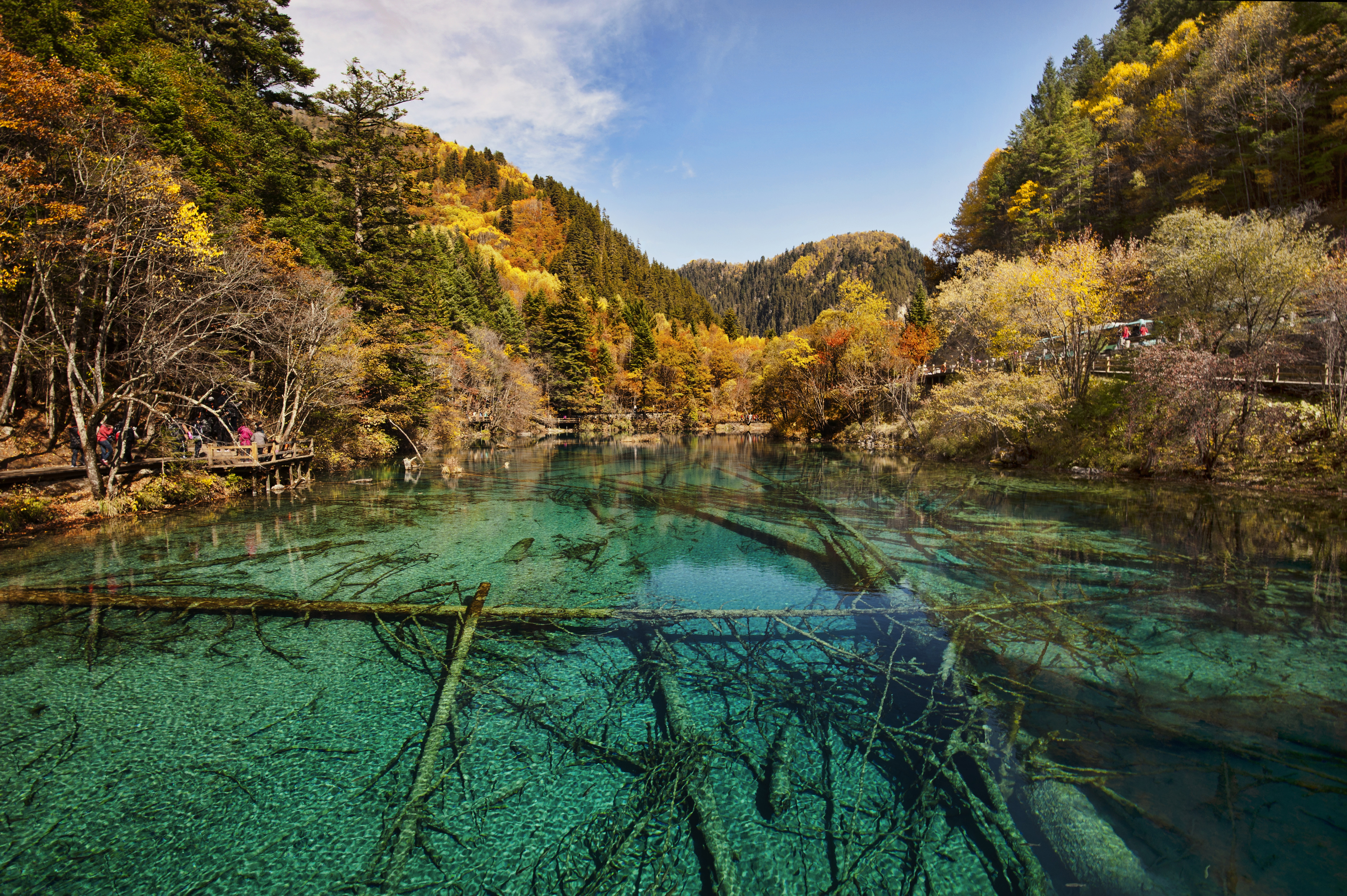
When Did Jiuzhaigou Become a National Park?
Jiuzhaigou, meaning "Nine Village Valley," is renowned for its stunning natural beauty. Nestled in the Sichuan province of China, this breathtaking landscape features vibrant blue lakes, cascading waterfalls, and snow-capped peaks. While many are captivated by its splendor, the journey to becoming a recognized natural treasure involved several significant milestones. Here's a closer look at the stages that led to Jiuzhaigou's recognition on both national and international platforms:
1992: Recognition as a UNESCO World Heritage Site
Jiuzhaigou's journey towards global recognition began in 1992 when UNESCO designated it as a World Heritage Site. This prestigious title acknowledged the valley's exceptional natural beauty and its significance in showcasing Earth's geological history. The site's unique travertine formations, formed over thousands of years, create the iconic blue lakes and waterfalls, captivating visitors from all corners of the globe.
1994: Dual National Recognition
Following its UNESCO listing, the Chinese government further acknowledged Jiuzhaigou's ecological importance in 1994. The valley was bestowed with two prestigious national designations:
| Designation | Significance |
|---|---|
| State Level Forest and Wildlife Nature Reserve | This designation underscores the region's vital role in protecting China's diverse flora and fauna. Jiuzhaigou harbors a rich tapestry of life, including numerous endangered species. |
| State Level Nature Reserve | This designation emphasizes the need to preserve the valley's unique geological formations, pristine waters, and overall ecological balance. |
These designations reflect China's commitment to safeguarding Jiuzhaigou's natural heritage for generations to come.
1998: UNESCO Man and Biosphere Reserve
Further solidifying its international standing, Jiuzhaigou received the UNESCO Man and Biosphere Reserve designation in 1998. This designation recognizes sites that demonstrate a harmonious relationship between humans and nature.
The recognition highlighted:
- Traditional Practices: The valley is home to Tibetan and Qiang communities whose traditional practices have long contributed to the area's environmental preservation.
- Sustainable Tourism: The designation encouraged the development and implementation of sustainable tourism practices, ensuring minimal impact on the environment while supporting local communities.
2002: Green Globe 21 Certification
In 2002, Jiuzhaigou achieved another milestone by receiving the Green Globe 21 certification. This globally recognized certification acknowledges destinations actively engaged in sustainable tourism practices. The certification validated Jiuzhaigou's efforts in:
- Waste Management: Implementing effective systems for waste reduction, recycling, and disposal.
- Resource Conservation: Promoting responsible use of resources, including energy and water conservation measures.
- Community Engagement: Involving local communities in tourism development and sharing the benefits of tourism.
Conclusion
From its initial recognition as a UNESCO World Heritage Site to achieving the Green Globe 21 certification, Jiuzhaigou's journey highlights a global commitment to preserving its exceptional natural beauty and cultural heritage. These recognitions not only celebrate the valley's splendor but also serve as a reminder of the importance of sustainable practices in protecting such remarkable landscapes for future generations.
FAQs
1. Why is Jiuzhaigou's water so blue?
The unique blue color of the lakes in Jiuzhaigou is due to the presence of dissolved calcium carbonate in the water. This mineral reflects blue light, giving the lakes their vibrant hue.
2. Are there any endangered animals living in Jiuzhaigou?
Yes, Jiuzhaigou is home to several endangered species, including the giant panda, golden snub-nosed monkey, and Sichuan takin. The park's protected status plays a crucial role in their conservation.
3. Can you swim in the lakes at Jiuzhaigou?
No, swimming is strictly prohibited in the lakes of Jiuzhaigou. This rule is in place to protect the delicate ecosystem and preserve the pristine quality of the water.